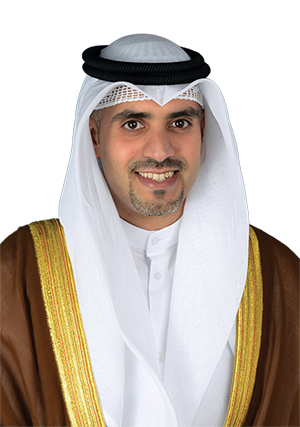KDIPA chief looks to foreign investment boost for Kuwait
The director-general of the Kuwait Direct Investment Promotion Agency tells James King how the country's opening up to foreign investment and the liberalisation of its economy is helping to alleviate the impact of the oil price crash.
For an oil-exporting country that is pinning its hopes on foreign direct investment (FDI) and privatisation to transform its economy, Kuwait is betting big on its recently established investment promotion agency. Indeed, pushing a hydrocarbon-dependent economy as an attractive investment destination in a sub-$50-a-barrel oil environment is no easy task. But as the national government forges ahead with the country’s latest development plan, opportunities for foreign investment are opening up.
Here, Dr Meshaal Jaber Al Ahmad Al Sabah, the director-general of the Kuwait Direct Investment Promotion Agency (KDIPA), remains upbeat about the challenges ahead. Noting Kuwait’s strong balance sheet, commitment to project spending and healthy financial sector, the expectation is that investor interest will grow in the coming years.
“I believe the FDI scene in Kuwait has witnessed market-favourable developments in the past few years, reflecting our country’s resolve to attract a larger share of quality direct investments that encourage faster economic diversification. This was brought about by the introduction of several economic laws that made the legal and regulatory framework more pro-business,” says Mr Al Sabah.
Acting fast
Fully operational in 2015, KDIPA has been quick to act on its mandate of attracting value-added investments into Kuwait, while promoting a more competitive and favourable business environment for foreign investors. In the agency’s first year of operation it secured a total of $1.25bn in licensed direct investments in the information and communications technology and energy sectors. With the government’s commitment to additional project and investment spending, further opportunities are expected to open for foreign investors.
“Kuwait offers a wide variety of mega-strategic projects under the current Second Medium-term Development Plan in priority sectors including the oil sector, infrastructure, electricity and water, transport, communications, tourism, the environment and urban development. The plan allocated about $103bn in investment expenditure open for local and foreign investors,” says Mr Al Sabah.
Beyond its initial success in attracting investment, KDIPA has a much more formidable challenge to face – improving the country’s investment climate. In recent years, Kuwait has slipped down the World Bank’s Doing Business ranking. In 2013, the country ranked 82 globally but by 2016 it had slipped to 101. In this respect, sizeable challenges do remain. Here, KDIPA is working to address some of these systemic problems.
“KDIPA has introduced positive measures on the ground to lessen bureaucracy, expand the utilisation of e-government and online services, establish coordination mechanisms and improve service delivery models for investors. Other objectives focus on providing investors’ services and aftercare, and nurturing a learning environment for its human resources,” says Mr Al Sabah.
Economic liberalisation
Together with these changes to the FDI climate, the government, in partnership with agencies such as KDIPA, is also pushing hard to achieve a broader liberalisation of the country's economy. Kuwait’s stock market has been open to participation by non-nationals since 2000, while foreign operators are now permitted to enter the petrochemical industry, just as international banks have been given greater scope to enter the local market.
The incentives of this strategy are clear. By promoting value-added investment in Kuwait, the authorities are hoping to grow the country’s non-oil sector and develop new private sector employment opportunities for Kuwaiti nationals. Over time, it is hoped that these efforts will address imbalances in the country's economy and provide an answer to some of the more pressing difficulties associated with oil-sector dependence. While more work needs to be done, the country nevertheless appears to be heading in the right direction.
“Kuwait’s economy has been resilient to plummeting oil prices, given its financial buffers have provided the cushion to smooth the process of economic adjustment, while supporting the government’s investment spending on major infrastructural and developmental projects. These strategic projects will eventually support economic diversification efforts, increase the share of the private sector in the gross domestic product, address structural imbalances, and support sustainable growth,” says Mr Al Sabah.



